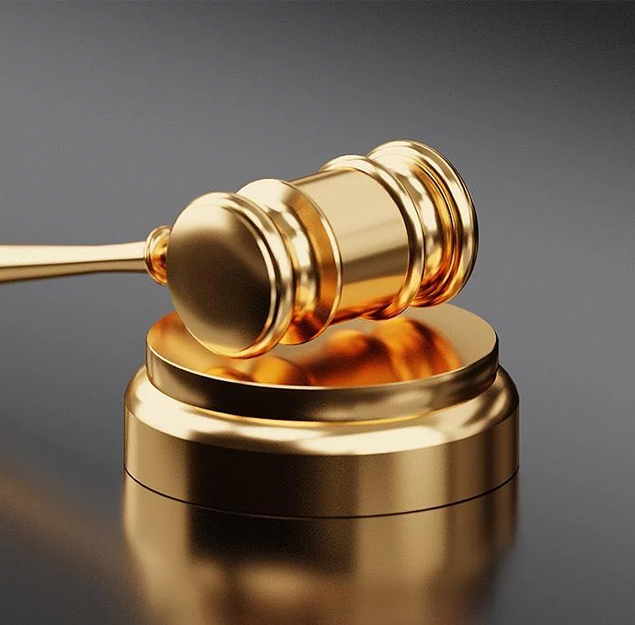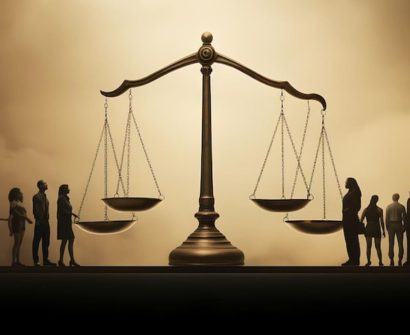
The national legal services authority v union of india decision of 2014, a historic decision by the Supreme Court of India, was an important victory for transgender rights. This important decision established an umbrella for transgender people’s inclusiveness and protection throughout the legal and social framework of the country, in furtherance of recognizing their rights.
The NALSA Judgment: Summary
nalsa case Facts:
To defend and preserve the rights of people who are a part of the transgender community, two writs were filed.
- A writ petition (writ petition no. 400 of 2012) was submitted by the National Legal Services Authority, which was established by the Legal Services Authority Act, 1997.
- Subsequently, the Poojya Mata Nasib Kaur Ji Women Welfare Society, a registered society dedicated to safeguarding the rights of the Kinnar (transgender) community, filed another writ case (No. 604 of 2013).
- In this current case, Laxmi Narayan Tripathi, who identified as a Hijra, also petitioned the court and was admitted. He stated that because he is a hijra, the Court had to step in to ensure that he and other individuals from his community were no longer subjected to discrimination and that his rights under Articles 14 and 21 were being denied.
nalsa case Issues:
The following were the issues that came before the Indian Supreme Court:
- Whether the Transgender Community’s lack of acknowledgment was impairing their constitutionally guaranteed fundamental rights in India;
- If an individual is born into one gender and undergoes surgery to change it, they should be recognized as belonging to the other gender (for example, a male born into a female identity, or vice versa);
- Whether the transgender community should be classified using a “third” gender.
nalsa v union of india: Arguments
By the Petitioner:
- The petitioner contended that Article 14’s Right to Equality, Article 21’s Right to Life and Personal Liberty, and Article 19’s Freedom of Expression are fundamentally violated by the idea of binary gender.
- Individuals who do not identify with one gender or the other face increased victimization and alienation.
- The petitioner claimed that because these individuals do not identify as belonging to a third gender, they are forced to live on the outskirts of society without their own fault, so violating their human dignity.
By the Respondent:
- The state has established an “Expert Committee on Issues Relating to Transgender,” the responders countered, which considers all points of view to assist the transgender community in living more respectable and prosperous lives.
- The reply stated that the committee would consider the petitioner’s perspective in developing a robust policy.
- Numerous States and Union Territories claimed to have made significant progress in enhancing the lives of the transgender population.
nalsa judgment:
On April 15, 2014, a two-judge panel made up of Justices K.S. Radhakrishnan and A.K. Sikri issued the decision, however, Justice Sikri added some additional remarks to his original view.
- In rendering its historic decision, the court cited a number of rulings from other countries, including England, New Zealand, Australia, Malaysia, and Pakistan.
- The Court distinguished between sex that is psychological and that is biological.
- The Court ruled that gender identity based on psychological sex was more important than gender identity based on biological sex.
- The Court decided that, as long as they are consistent with the fundamental rights protected by Part III of the Constitution, all clauses in international conventions, including the Yogyakarta Principles, must be acknowledged and complied with.
- The Court ruled that transgender people are entitled to all of the transgender rights specified in the Indian Constitution since they are covered by it.
- Men, women, and transgender people are all included in Article 14’s promise of equality and, as such, are entitled to equal protection under the law.
- In terms of employment, healthcare, education, and civil rights, they are equal.
- Discrimination based on sexual orientation and gender identity is against Article 14 and signifies unequal protection under the law as well as inequality before the law.
- The Court went on to say that transgender people have the right to freedom of expression under Article 19, which allows them to act, speak, dress, and behave however they like.
- Under Article 21, they also have the right to a dignified life.
- The Court ruled that in order for transgender people to access healthcare and education without facing discrimination, the State and Federal governments must fully recognize them as legal persons.
- The Court further determined that Eunuchs and Hijras should be regarded as the “third gender.”
- It issued a number of proclamations and directives to the federal government and state governments, including the establishment of distinct HIV Zero-Surveillance Centres, the provision of gender-neutral public restrooms, and the provision of appropriate transgender medical care in hospitals.
The NALSA Judgment FAQs
- What were the key points of the Nalsa judgement?
The Court affirmed everyone’s right to self-identify as a particular gender. Moreover, it stated that eunuchs and hijras are legally permitted to identify as “third gender.” The Court made it clear that gender identity was “an innate perception of one’s gender” rather than referring to biological traits.
- What is the role of Nalsa in free legal aid?
The main goals of NALSA are to arrange Lok Adalats for the peaceful resolution of disputes, guarantee that no citizen is denied the opportunity to obtain justice because of their financial situation or other disabilities, and offer free and competent legal services to the less fortunate members of society.
- Who introduced free legal aid?
At the time, Justice P.N. Bhagwati served as an Indian Supreme Court judge. The Committee for Implementing Legal Aid Schemes (CILAS) was renamed and began overseeing legal aid initiatives around the nation.
- What is NALSA case related to?
Among other directives to the government, the historic ruling in NALSA v. Union of India (2014) acknowledges transgender people as the third gender.
- What is the function of NALSA?
NALSA’s primary objectives are to set up Lok Adalats for the peaceful settlement of conflicts, ensure that no citizen is denied the chance to pursue justice due to their financial circumstances or other disabilities, and provide the less fortunate members of society with free and expert legal services.
- What is NALSA summary?
The Legal Services Authorities Act of 1987 established the National Legal Services Authority (NALSA) with the dual goals of arranging Lok Adalats for the peaceful resolution of disputes and the less fortunate segments of society receive free legal services.
- Is NALSA a statutory body?
Yes, the Legal Services Authorities Act of 1987 established the National Legal Services Authority (NALSA), a statutory agency whose goals are to arrange Lok Adalats for the peaceful resolution of disputes and to offer free legal services to the most vulnerable members of society.
- Which Online rjs coaching is best for RJS preparation?
The reputable Jaipur Online rjs coaching program “Jyoti Judiciary Coaching” aids students in getting ready for the RJS exam. A systematic approach to RJS test preparation is made possible by Jyoti Judiciary, the top offline and online RJS coaching program in Jaipur. Their curriculum has been carefully designed to cover all the subjects and courses required for passing the Rajasthan Judicial Service Examinations.
- Which coaching is best for judiciary?
The most effective judiciary coaching in Jaipur is provided by Jyoti Judiciary Coaching. The objective is to create a comfortable learning environment for the students. It makes the difficult task seem easy, which increases the likelihood of achieving the desired outcome. The objective at Jyoti Judiciary is to give students the best possible education possible. The Institute pledges to use every resource at its disposal to provide you with the finest preparation for the Judicial Services entrance examinations.
With the goal of giving students the best coaching available for law entrance exams including the CLAT, AILET, and various other numerous state judiciary exams, Jyoti Judiciary Coaching, India’s Finest educational Platform, was established. Come enrol now with Jyoti Judiciary!
For any latest news, legal topics, judiciary exams notifications, patterns, etc watch Jyoti Judiciary’s YouTube channel for legal videos for any updates at https://youtube.com/@jyotijudiciarycoaching4852?si=2cwubh9d2A9urwJf










